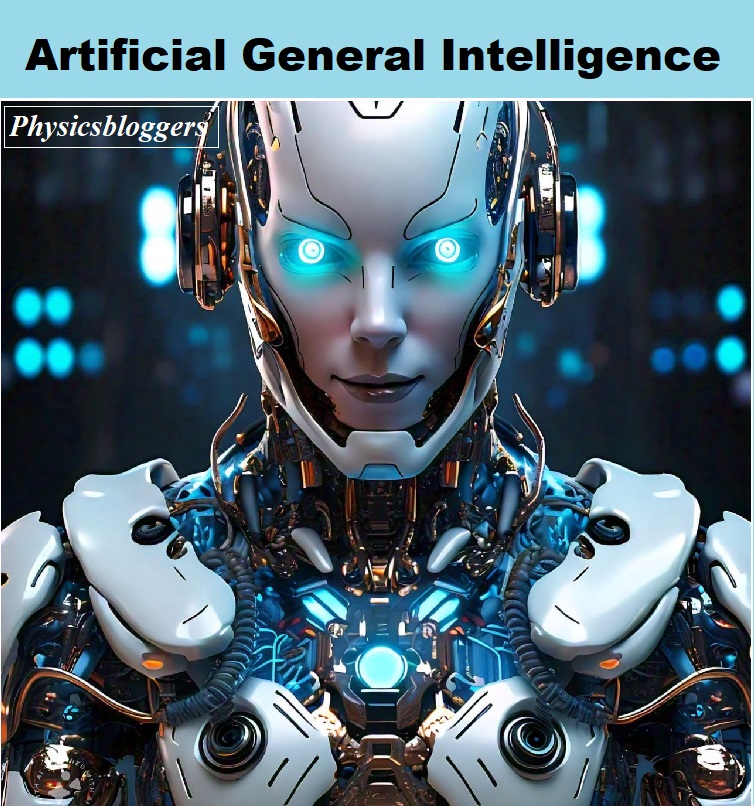Artificial General Intelligence

Artificial General Intelligence
Introduction
For decades scientists, academics, and futurists have been enthralled with artificial general intelligence (AGI), sometimes known as strong artificial intelligence. Unlike narrow artificial intelligence, which shines in particular tasks like image recognition or language translation, AGI seeks to imitate human cognitive capacities over various activities. From healthcare to education and perhaps the fundamental fabric of society, this leap from specialized knowledge to general intelligence could transform many disciplines. This paper explores what AGI is, the present status of research, and the opportunities, and ethical issues related to this innovative technology.
Artificial General Intelligence: Definition
AGI stands for a degree of artificial intelligence capable of completing any intellectual endeavor that is humanly capable. Like human beings, AGI systems would thus be able to grasp, absorb, and apply information in a variety of settings. On the other hand, narrow artificial intelligence, which is somewhat common nowadays, is limited to particular tasks and cannot be used across other fields. An artificial intelligence taught to play chess, for instance, cannot immediately adapt its understanding to other games or jobs.
AGI is about developing systems that can think, reason, and adapt like people as much as it is about producing machines that might replicate human behavior. This covers common sense thinking, context understanding, and processing of natural language. Reaching AGI would require creating robots capable of independently human-like understanding and interaction with the environment.
The present status of artificial general intelligence research
There are still great obstacles to be overcome on the path toward artificial general intelligence. The creation of algorithms able to generalize knowledge over several activities and domains is one of the fundamental challenges. While they struggle with tasks requiring knowledge of subtleties and context, current artificial intelligence systems shine in some areas where they are educated on enormous volumes of data.
Advancements in neural networks, deep learning, and reinforcement learning are among the several ways researchers are looking at overcoming these constraints. The creation of neural structures able to learn more effectively and transmit knowledge from one domain to another presents one exciting field. For example, one increasingly popular route to artificial general intelligence is meta-learning, sometimes known as “learning to learn.” Reflecting human-like learning skills, meta-learning aims to build systems that can rapidly adapt to new tasks with limited inputs.
Problems in Creating Artificial General Intelligence
AGI development presents several philosophical and technical difficulties. Developing systems that can process and comprehend natural language in a contextually appropriate manner presents one of the main technical difficulties. Although natural language processing (NLP) has advanced greatly, comprehending the intricacies and complexity of human language remains a major challenge.
Making decisions under uncertainty and reasoning through ambiguity present still another difficulty. Human intelligence is distinguished by the capacity to make wise judgments even in the presence of insufficient or contradicting data. Creating algorithms able to reproduce this capacity calls for developments in probabilistic thinking and decision theory.
Philosophically, artificial general intelligence begs issues concerning consciousness, self-awareness, and the essence of intelligence itself. Are they especially human qualities or can a machine be regarded to be conscious or intelligent? These are not only intellectual but also pragmatic concerns for our design, interactions with, and control of AGI systems.
Ethical Concerns and AGI’s Future
The evolution of artificial general intelligence raises several ethical questions. The possibility of AGI surpassing human intelligence raises one of the most urgent issues since it would create situations whereby machines may make decisions significantly affecting mankind. This includes the issue sometimes referred to as the “control problem,” which is AGI systems operating in ways incompatible with human ideals and ethics.
Potential job displacement presents still another ethical dilemma. AGI systems could eventually displace humans in a variety of professions as they grow more competent, causing societal and economic disturbance. This begs issues of how to guarantee a fair and equitable change to a time when machines can do many duties now completed by people.
Privacy, security, and the possible use of artificial general intelligence (AGI) in fields including data manipulation, military uses, and monitoring also raise questions. Establishing strong ethical rules and regulatory frameworks is essential as the evolution of artificial intelligence could lead to strong new instruments for control and influence.
Getting ready for a future with artificial general intelligence
Proactive planning and preparedness are vital for civilization as we get closer to the prospect of realizing artificial general intelligence. This includes encouraging multidisciplinary research combining specialists in disciplines such as computer science, ethics, law, and social sciences. Such cooperation will enable us to grasp the consequences of artificial general intelligence and create structures for responsible development and use.
Crucially also are public involvement and education. Increasing knowledge of the possible advantages and drawbacks of artificial general intelligence will help us to guarantee that many points of view are taken into account in determining the direction of this technology.
Conclusion
With the ability to revolutionize many spheres of our lives, artificial general intelligence marks a major advance in the science of artificial intelligence. This change does, however, present ethical questions and difficulties that need to be resolved. We can use this great technology to build a better future for everybody by carefully addressing AGI development with openness, transparency, and ethical consideration emphasis. The decisions we take now will determine how AGI shapes our planet for the next generations as we stand on the brink of this new age.



